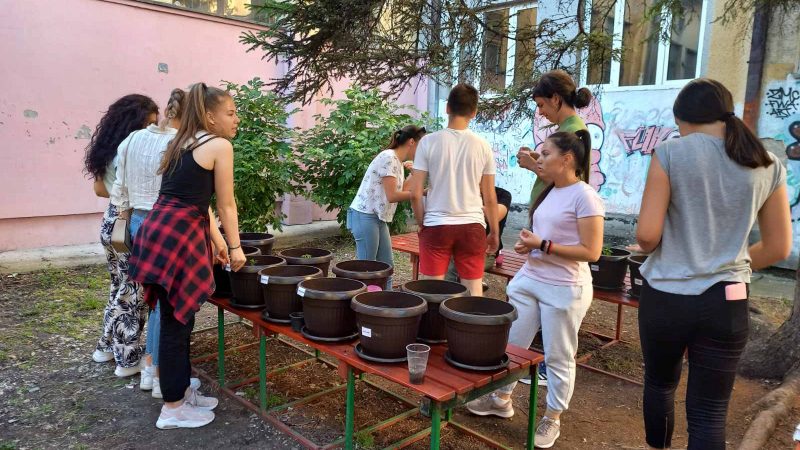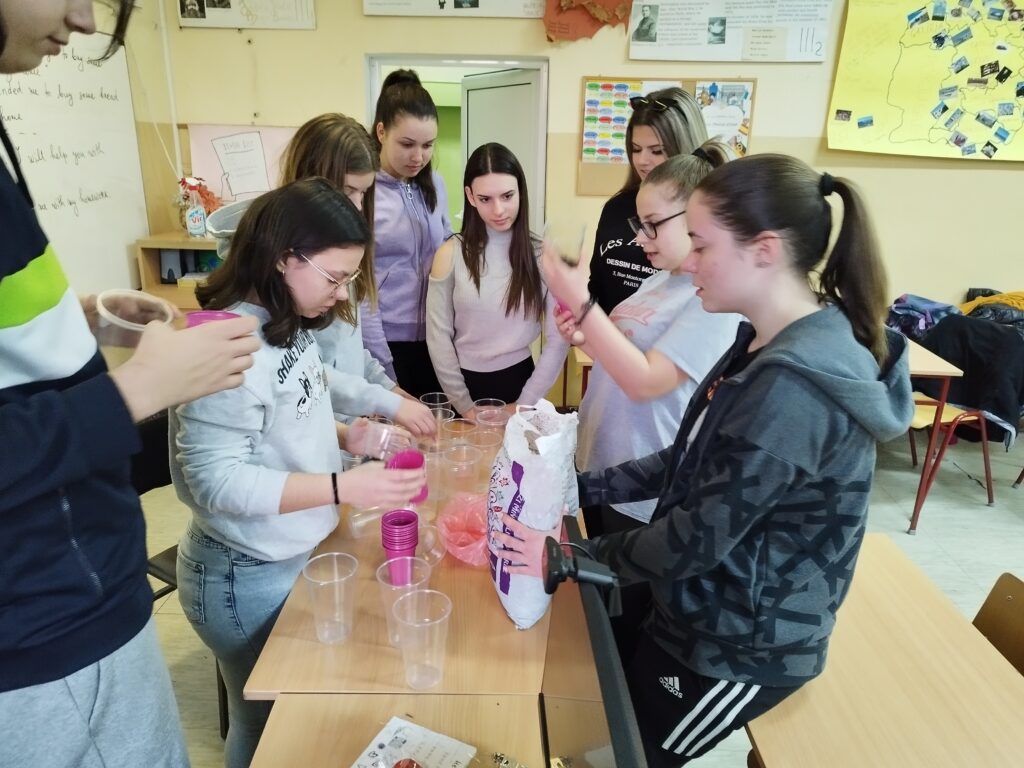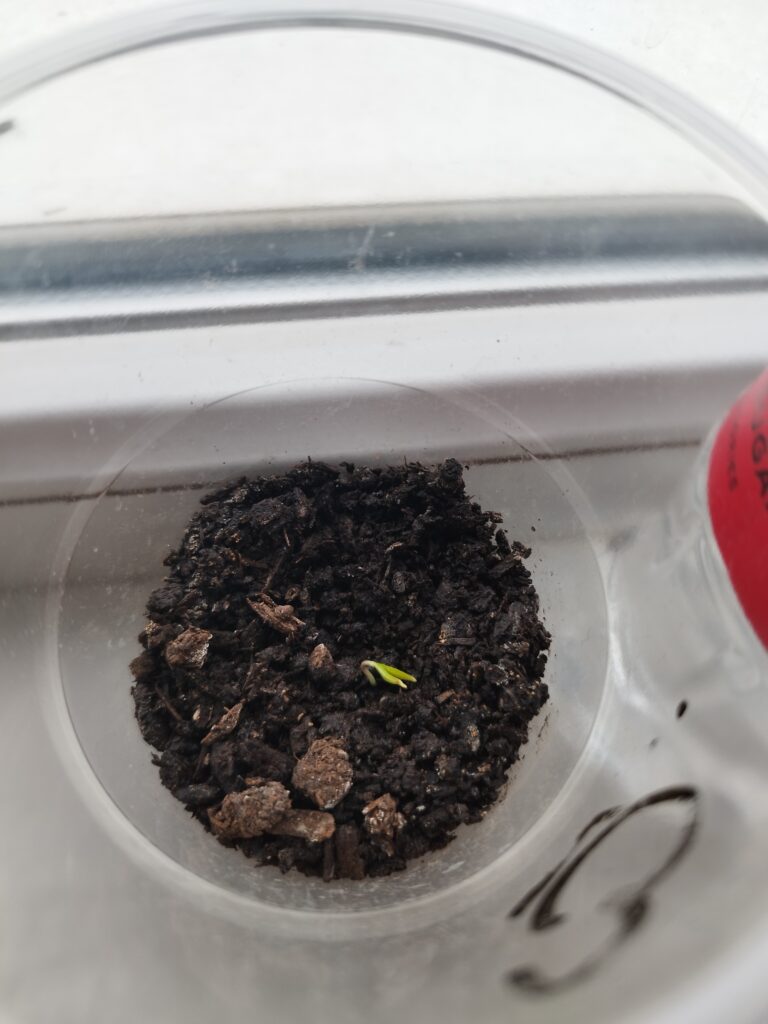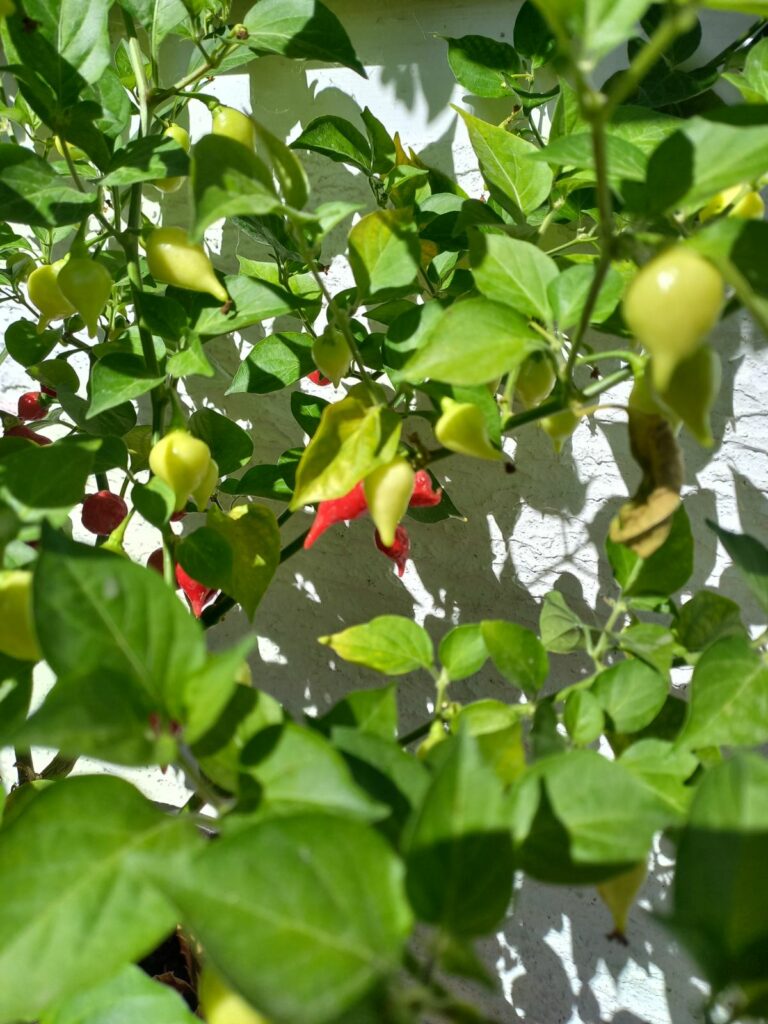This living lab project is hosted in a very active school with a lot of ongoing projects. It’s a busy place with very strong STEM teachers and STEM activities. This school is located in the small city of Zaječar and remains a community point for science-related activities. Recently, the school opened a maker space and a Science club, both operating in the school but also as community centres for science and technology-related projects.
Eastern Serbia has been performing poorly in terms of food yield for years, with mostly grain and wheat planted. This living lab project wants to address this issue and develop solutions suitable for the region. Students, parents and teachers, with the help of a local gardening club and an agricultural pharmacy, opened a smart garden in the school. It was used for the production of various plants, which were continuously examined to determine which crops could grow successfully in Eastern Serbia.
At the beginning of the project, the seeds were given to students who kept them at home until they were big enough to be transferred into bigger pots. This resulted in a better engagement of families. The local gardening club provided students with seeds and advice, while the agricultural pharmacy was involved in plant care. With the support of the school maker space, the students created and implemented a smart system of watering and tracking which includes Arduino controls. Finally, students contacted local restaurants and offered them a variety of peppers for making sauces.
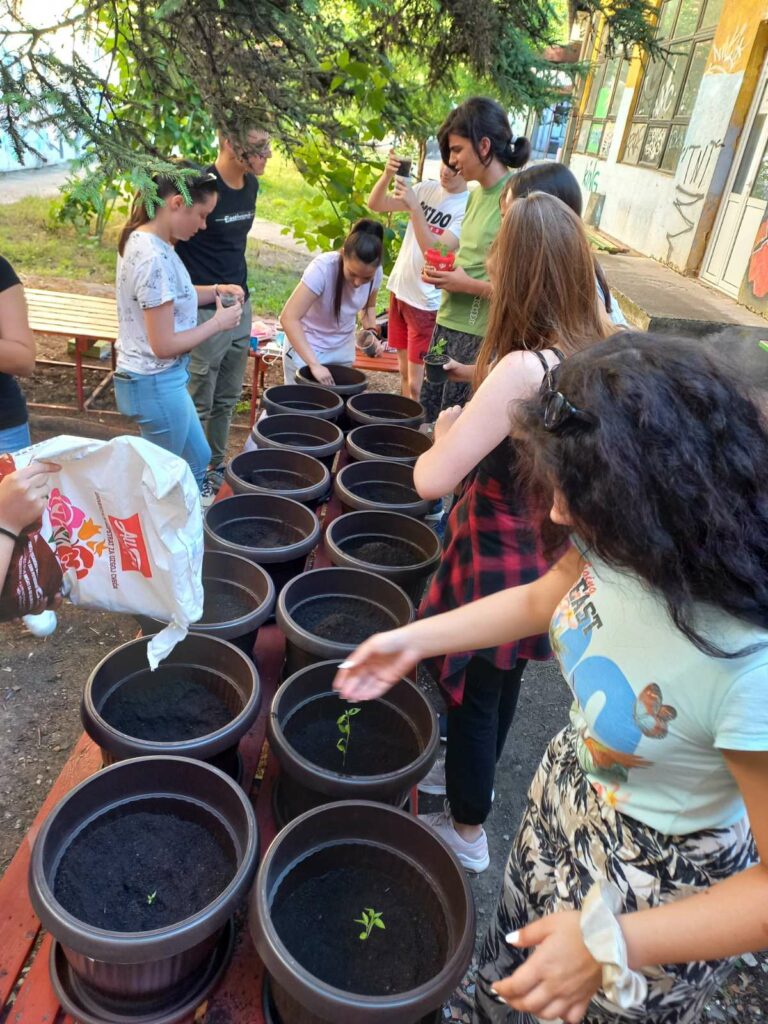
Here is what teachers, students and external partners have to say about their Open Schooling experience:
Teachers “All 15 students that have participated in SALL signed up for the elective course Applied sciences. Which is great! Their interest in science rised and kept rising.” //// “It’s fun as now we can even bring peppers as presents when we visit other schools. It is highly unusual and leaves a good impression.”
Students “I liked that we combined something in an interesting way that we might never have thought could be combined – science and food. The first task of this project was to grow peppers at home, which unfortunately did not work for me, but it did not prevent me from participating in a further project where at school, in a new, modern classroom, I got the opportunity to take care of peppers and learn something about one of the hottest peppers in the world. I look forward to continuing my involvement in this project and can’t wait to see the next step of this project.” //// “I liked the fact that the peppers were not so difficult to maintain and we can get a lot of things from them, for example capsaicin which we can use for various purposes.” //// “I liked this project because, above all, we socialised while realising it. I also liked that planting plants is not very common for the High School, and we got the opportunity to be versatile. We tried our best to make something work and it paid off in the end.”
External partners “It is always a pleasure to work with young people and exit our everyday routine.”
Contact
Jelena Joksimović
National coordinator – Center for the promotion of science
Mail
School website

